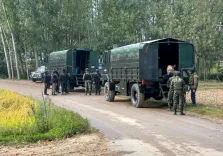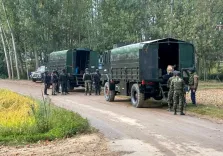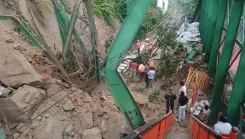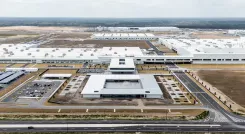SC Judge Calls for Unity and Empathy Among Manipuris to Resolve Ethnic Tensions
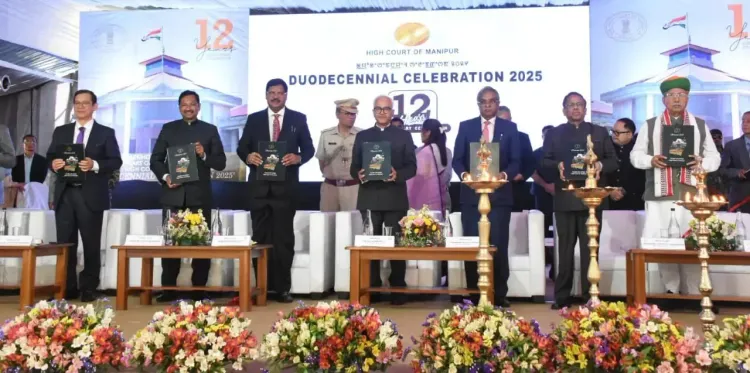
Synopsis
Key Takeaways
- Justice Singh emphasizes the importance of dialogue and constitutional values.
- He acknowledges the unique situation in Manipur compared to Jammu and Kashmir.
- Unity and fraternity are essential for resolving ethnic tensions.
- The state has a rich judicial history and tradition.
- Efforts by the legal community in remote areas will be recognized.
Imphal, March 23 (NationPress) Supreme Court Justice N. Kotiswar Singh, a native of Manipur, on Sunday, encouraged all parties to come together with a spirit of empathy, sympathy, and fraternity to address the persistent ethnic challenges in the region.
Speaking at an event commemorating the 12th anniversary of the Manipur High Court, Justice Singh, who previously served as the Chief Justice of the High Court of Jammu and Kashmir and Ladakh before his elevation to the Supreme Court on July 18 last year, reflected on the difficulties faced in Jammu and Kashmir due to hostile forces endorsing secessionism.
"The circumstances in Manipur are distinct from those in Jammu and Kashmir. Any challenging situation can be overcome through constructive dialogue and adherence to constitutional values. The Constitution of India provides a framework to tackle challenges during trying times," stated Justice Singh, who also held the position of Chief Justice of the Gauhati High Court in 2020-21.
He noted that Manipur has historically faced issues due to its geographical isolation, emphasizing the state’s rich cultural and traditional heritage since the era of princely rule.
The Supreme Court judge urged everyone to foster fraternity, unity, and integrity.
“We are optimistic that the situation in Manipur will reach a resolution soon. During the recent visit of Supreme Court judges to Churachandpur and Bishnupur, we observed tremendous hope and aspirations among the locals. There is a collective desire for peace and unity,” he commented.
Speaking to the lawyers present, he assured them, "I can guarantee that diligence and commitment will not go unnoticed. Do not feel marginalized because you are in a remote state like Manipur. Keep working hard, and your efforts will be acknowledged."
In his address, Manipur Governor Ajay Kumar Bhalla acknowledged the attendance of Supreme Court judges and Union Law and Justice Minister Arjun Ram Meghwal, indicating the nation's concern and attention towards the state.
He congratulated the Chief Justices and Judges of the Manipur High Court for their relentless dedication to ensuring the rule of law in the state.
"Manipur has a profound judicial history that dates back to the ancient courts of Kutchu and Pacha. Over time, the judicial framework in the state has evolved, with the Cheirap Court, located in the heart of Imphal, being a significant historical judicial institution. During the pre-independence period, the Manipur state ‘Durbar’ exercised both original and appellate jurisdiction over civil and criminal issues," he added.
Union Minister of State for Law and Justice Arjun Ram Meghwal, along with Supreme Court Justices B.R. Gavai, Vikram Nath, M.M. Sundresh, and K.V. Vishwanathan, as well as the Chief Justice of the Manipur High Court D.Krishnakumar, also spoke at the event.
Justice Gavai led a five-member delegation of Supreme Court judges to the violence-impacted state, inaugurating legal services, medical camps, and legal aid clinics across various districts from the Mini Secretariat in the tribal-inhabited Churachandpur district on Saturday. During their visit to Churachandpur and Bishnupur, the judges interacted with displaced individuals seeking refuge in relief camps in both districts.
The High Courts of Manipur, Tripura, and Meghalaya were established on March 23, 2013, following the North-Eastern Areas (Reorganisation) and Other Related Laws (Amendment) Act, 2012, which called for separate High Courts for these states.


